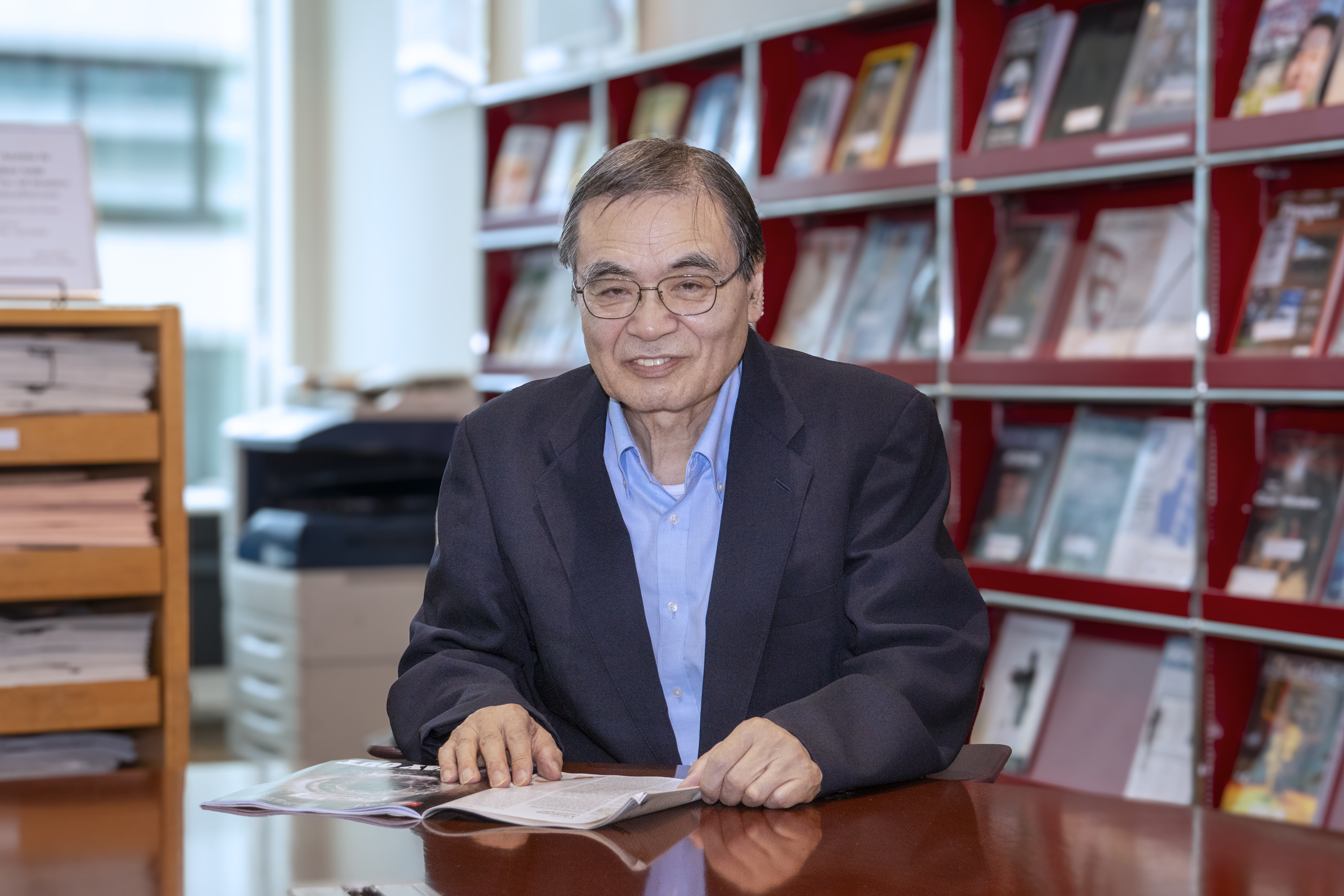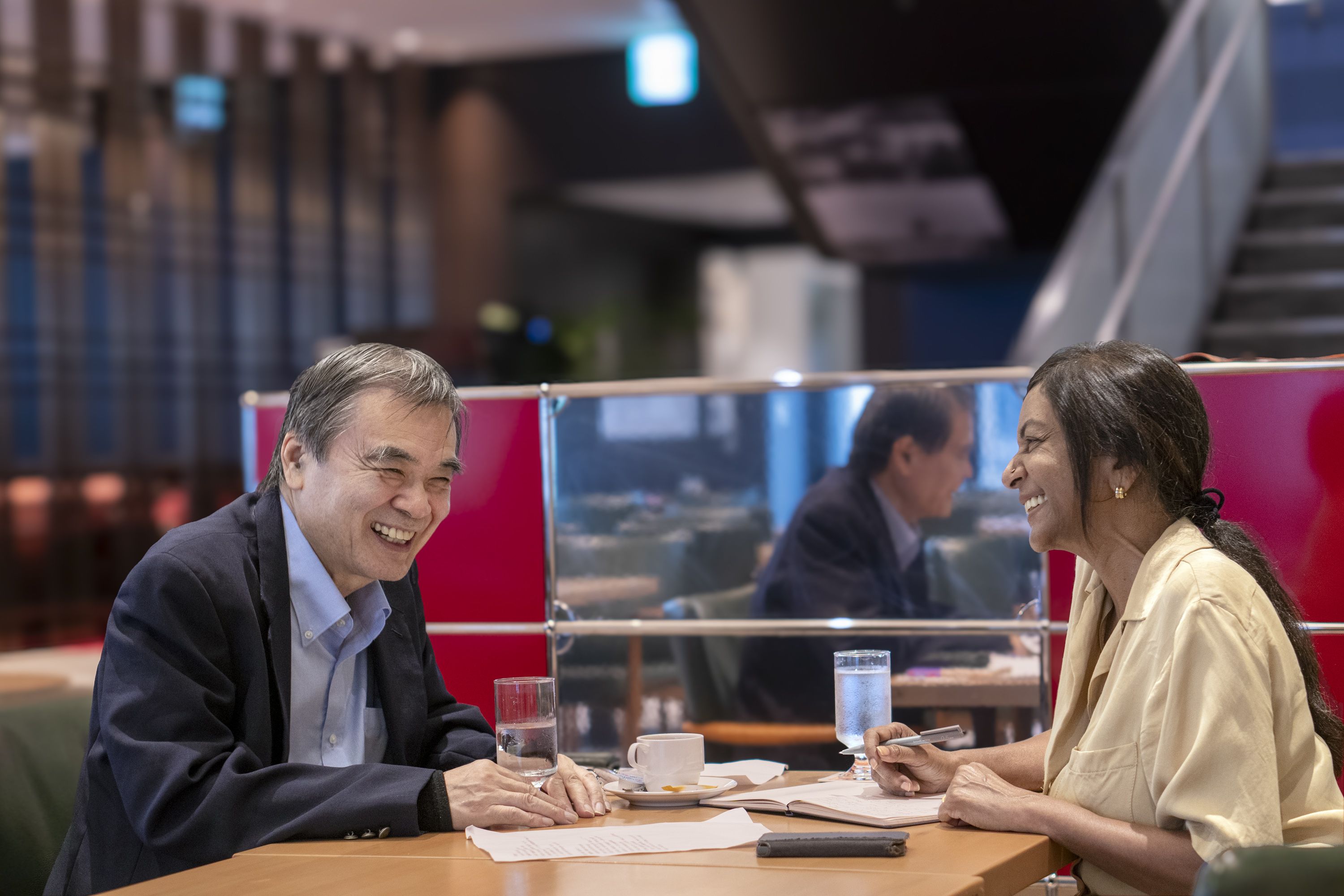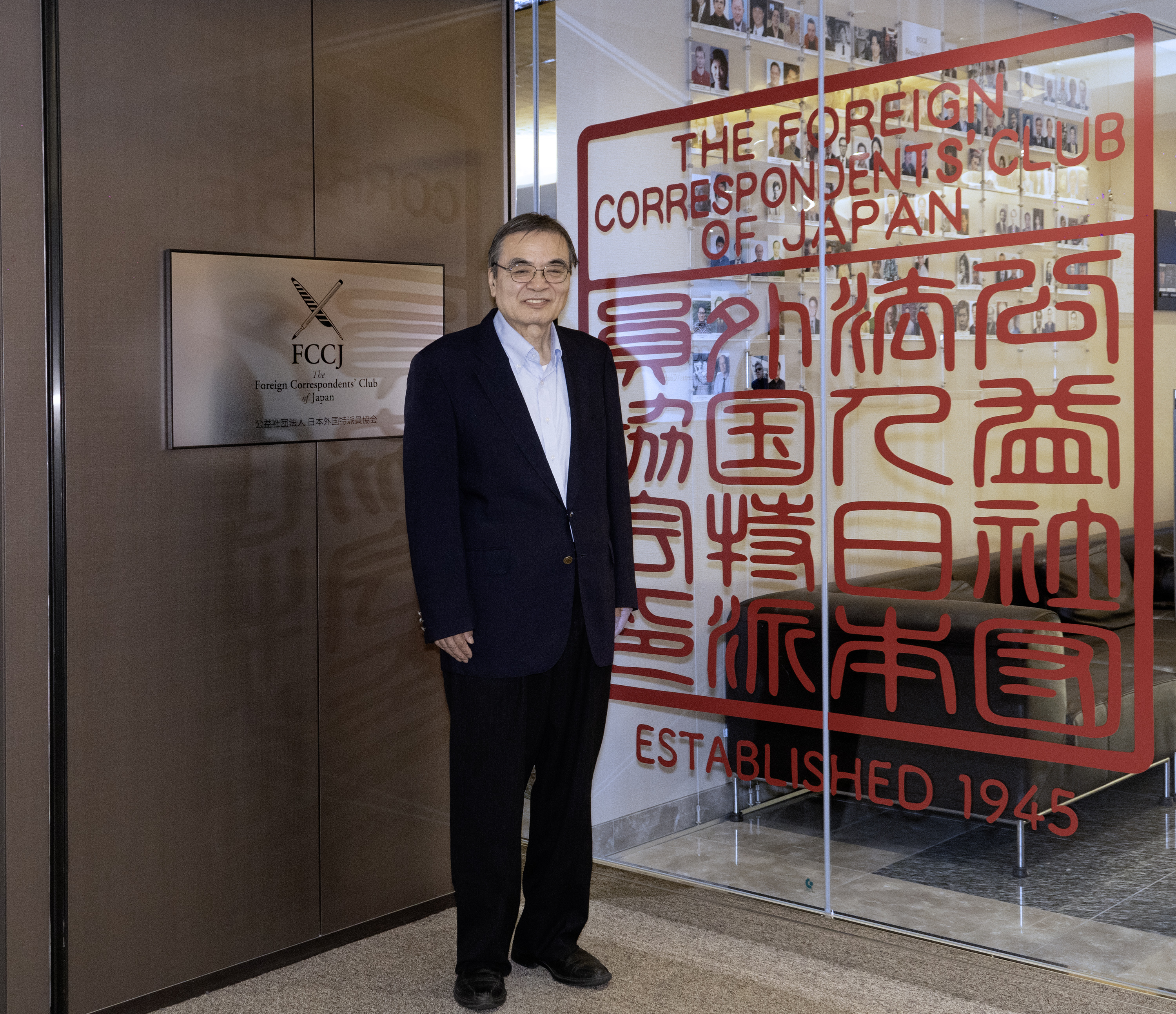Issue:
September 2025 | Ask an Associate
Fairness and social justice are the founding principles of Akio Hayashi's prep and language schools

Akio Hayashi, the managing director of several preparatory and Japanese-language schools, has always believed in social justice - hence his decision to join the FCCJ. “Journalism is based on facts for social good,” the 75-year-old said in a recent interview.
Hayashi’s commitment to a fairer world began when he was a child. His parents ran a rice wholesale business in Tochigi where he was exposed to the economic challenges facing farmers in the bitterly cold region. Snow covers Japan’s north for almost half a year, including landlocked Tochigi in northern Kanto. When the soil is impossible to plough, male farmers have traditionally moved to big cities to work as laborers. Migration was still commonplace when Hayashi was growing up there.
His views solidified when he entered the law department at Keio University. “I selected a seminar on victims’ justice because it was not only about their perspectives," he said. "We also studied about the perpetrators." Hayashi recalled accompanying his professor on prison visits - experiences that influenced his world view. “I learned that, in the end, justice is about protecting people’s capacity to live with integrity and honesty,” he said. “I vowed to contribute to a system that could attain that goal,”.
Today, Hayashi is committed to making education a viable path to achieve a fairer society. After a brief stint volunteering in Japan’s probation system, which supports rehabilitation programs for juvenile criminals to return to mainstream society - an approach Hayashi admires for giving troubled youngsters a second chance - the businessman applied his convictions to the management of his schools.

He opened his first Kairen Juku, or cram schools, in 2008, not only for aspiring students but also to support dropouts from Japan’s school system, which is increasingly blighted by bullying and poverty. At Hayashi’s tutoring schools, elite teachers voluntarily teach at institutions catering to high-school leavers who attend alternative places of learning, such as night schools. “My teachers are responsible for critical subjects such as mathematics and science,” he said. The results have been encouraging, with many graduates going on to have professional careers.
In addition, Hayashi set up a programme 15 years ago to raise education standards at schools that take in students who have withdrawn from formal education. As a volunteer chairperson at Yuhou Gakunin, a school in Fukushima, Hayashi set up a system that enables teachers and principals to complete masters and doctoral degrees. “The objective is to ensure their students have access to academic expertise on par with regular schools,” he said.

In 2017, Hayashi launched several Japanese-language schools for foreigners seeking jobs in Japan. “I wanted to ensure foreigners have access quality education just like their Japanese counterparts,” he said, linking this target to the hard reality that the Japanese economy is firmly reliant on foreign workers.
His language schools follow UNESCO curriculums to support United Nations Sustainable Goals. Foreign students enrol in mandatory subjects, including Japanese traditions and management principles that advance equality, safety and organization in the workplace. They are also given opportunities to play a role in their local community, such as volunteering at local festivals. “We even have a school newspaper written by the students. They interview locals to about their new surroundings and also share their cultures to create a community with their hosts,” he said. The overwhelming majority of his language-school graduates enter Japanese universities and go on to find well-paid jobs.
As a member of national and local government panels debating Japan’s immigration policy, Hayashi argues that foreign students must have equal status with their Japanese counterparts. “Fair treatment will reduce tensions with immigrants and promote a stable society for everyone,” he said. He is particularly committed to a campaign to pressure the government to provide free Japanese-language instruction to newcomers. “I don’t see why foreign students should be working long hours to pay for their tuition,” he said, pointing out some Western countries provide these services to migrants.
Suvendrini Kakuchi is Tokyo correspondent for University World News in the UK.

